Enjoy quiet, ecofriendly adventures on German lakes that allow only electric boats. Discover top spots for sustainable travel across the country.
Germany is home to countless lakes, each offering its own slice of natural beauty. With increasing efforts to preserve these fragile ecosystems, many lakes across the country now limit or ban combustion engine boats in favor of electric boats or muscle-powered vessels like canoes and sailboats. These quiet, eco-friendly regulations are not only good for the planet — they also enhance the serenity of the water, giving visitors a peaceful way to enjoy nature.
Here’s a list of lakes across various German regions where only electric boats are allowed, or where combustion engines are heavily restricted.
Bavaria (Bayern)
Königssee
Located in Berchtesgaden National Park, this emerald-green lake allows only electric passenger ferries — no private motorboats permitted.

Königssee, source: https://www.koenigssee.de/home
Ammersee
Just outside Munich, Ammersee permits only electric and non-motorized boats, maintaining quiet waters and clean air.
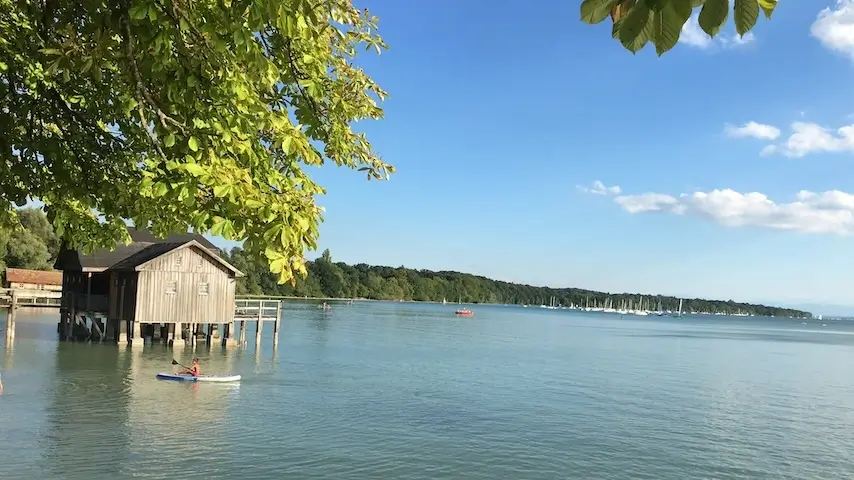
Ammersee, source: https://www.ammersee-region.de
Tegernsee
Private combustion engines are banned. Electric boats and sailboats dominate, preserving the lake’s peaceful charm.
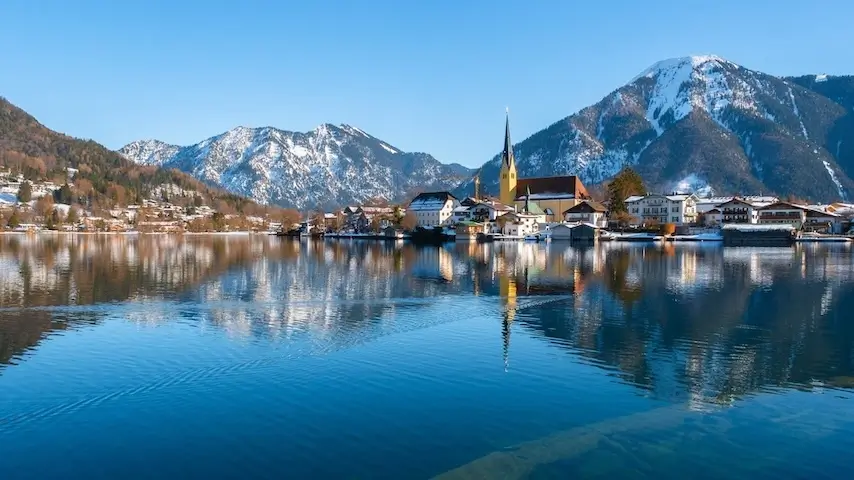
Tegernsee, source: https://www.wanderverband.de/
Starnberger See
Only a handful of commercial combustion boats are grandfathered in — new engine-powered private boats must be electric.

Starnberger See, source: https://www.vier-jahreszeiten-starnberg.de
Staffelsee
This tranquil lake near Murnau allows only electric and paddle-powered boats, protecting its many small islands and reed beds.
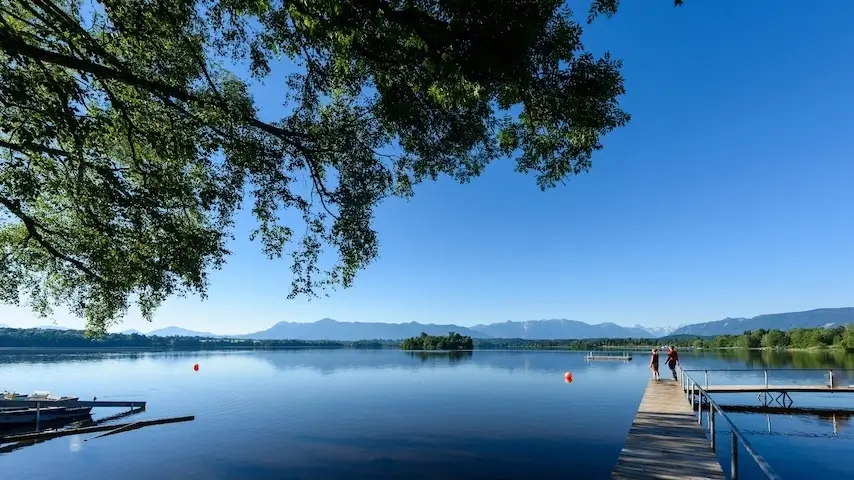
Staffelsee, source: https://www.dasblaueland.de/
Chiemsee
Though a few public transport boats use diesel under strict regulation, private engine boats must be electric.
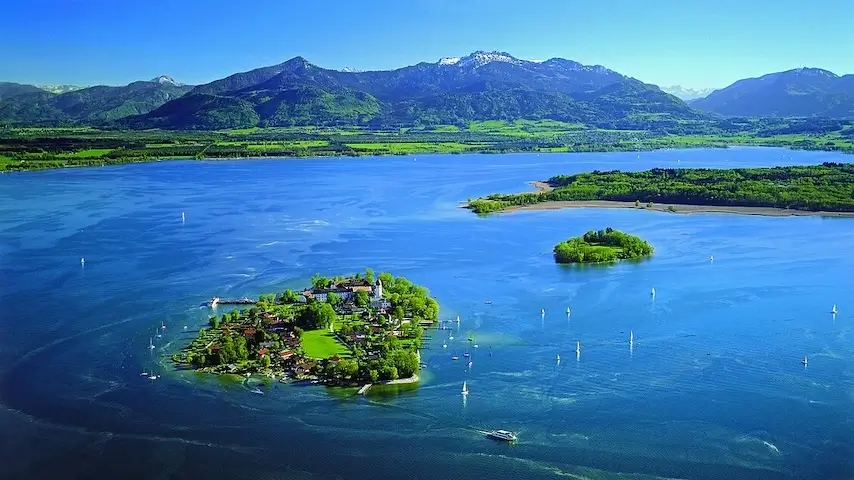
Chiemsee, source: https://www.chiemsee-schifffahrt.de
Eibsee
At the foot of Zugspitze, Germany’s highest mountain, Eibsee allows only rowing, pedal, or electric boats.
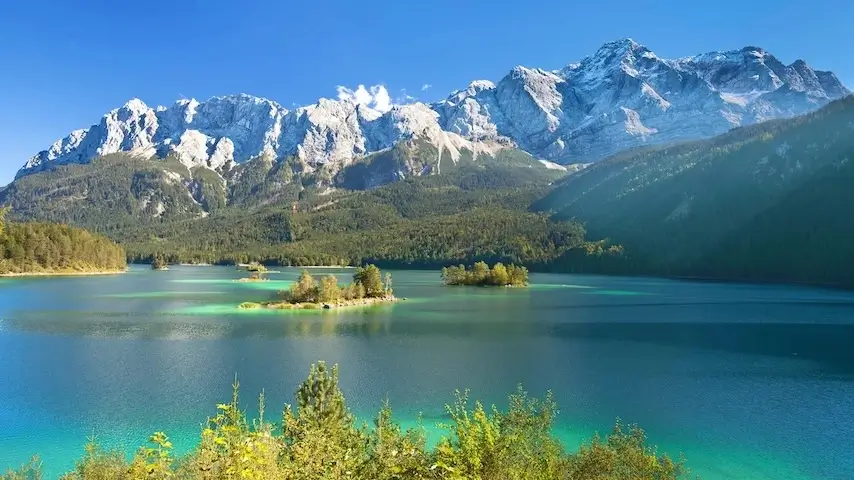
Eibsee, source: https://www.varta-guide.de
Baden-Württemberg
Titisee
In the Black Forest, Titisee permits only electric boats and human-powered watercraft. Its serene waters are a major draw for eco-conscious tourists.
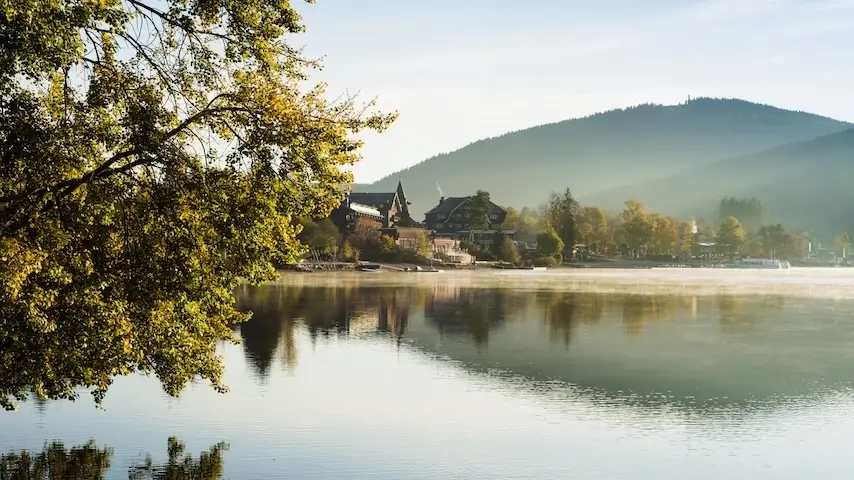
Titisee, source: https://www.schwarzwald-tourismus.info
Schluchsee
Germany’s highest reservoir also restricts combustion engines. Electric boats and sailboats are welcome.
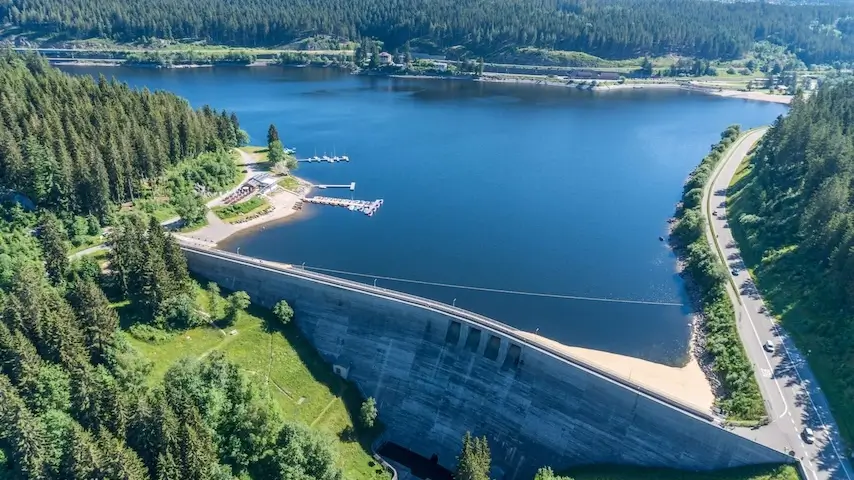
Schluchsee, source: https://www.huge.geographie.uni-freiburg.de/
North Rhine-Westphalia (Nordrhein-Westfalen)
Möhnesee (parts)
While some areas allow combustion boats under regulation, parts of the lake and its tributaries only permit electric or muscle-powered boats, especially in nature protection zones.
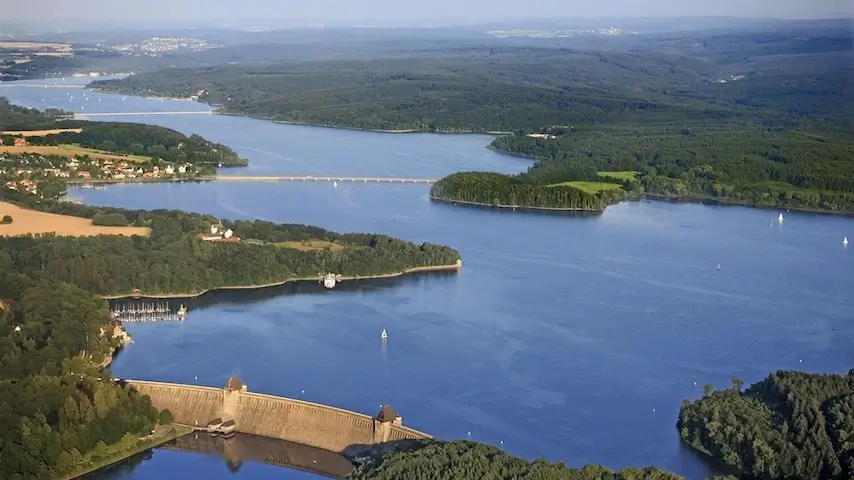
Möhnesee, source: https://arnsberg-info.de
Biggesee
Similar to Möhnesee, certain zones of this lake emphasize electric boating to protect wildlife and maintain quiet areas.
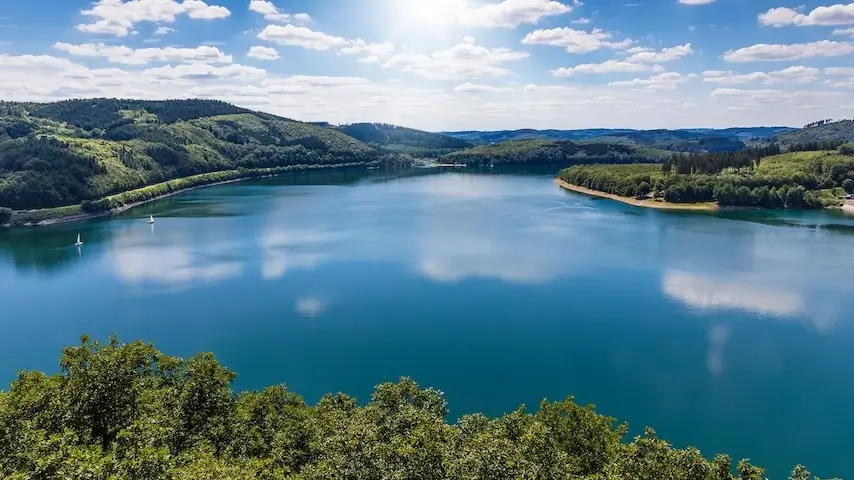
Biggesee, source: https://www.platte.de/
Brandenburg & Berlin Area
Werbellinsee
Located in the Schorfheide-Chorin Biosphere Reserve, this clear lake limits motorboat use, encouraging electric boating and sailing.
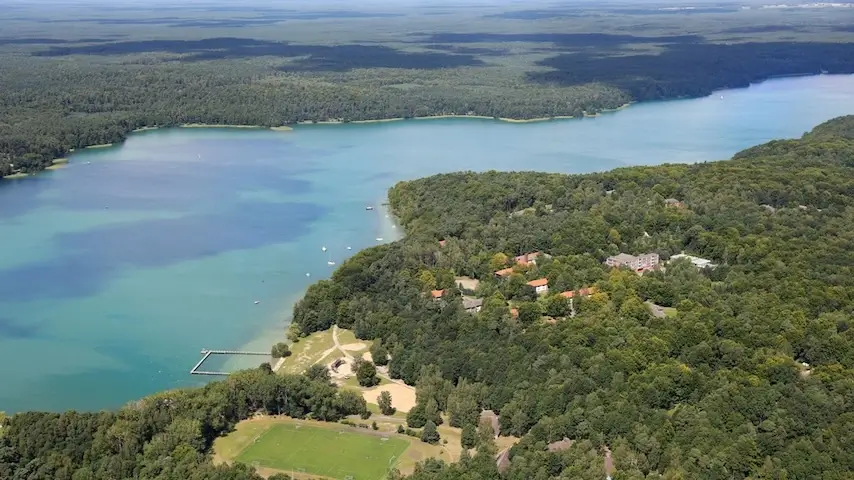
Werbellinsee, source: https://best-weekend.de/
Stechlinsee
One of Germany’s cleanest and deepest lakes, located in a protected area — combustion engines are strictly forbidden. Electric boats are the sustainable alternative.
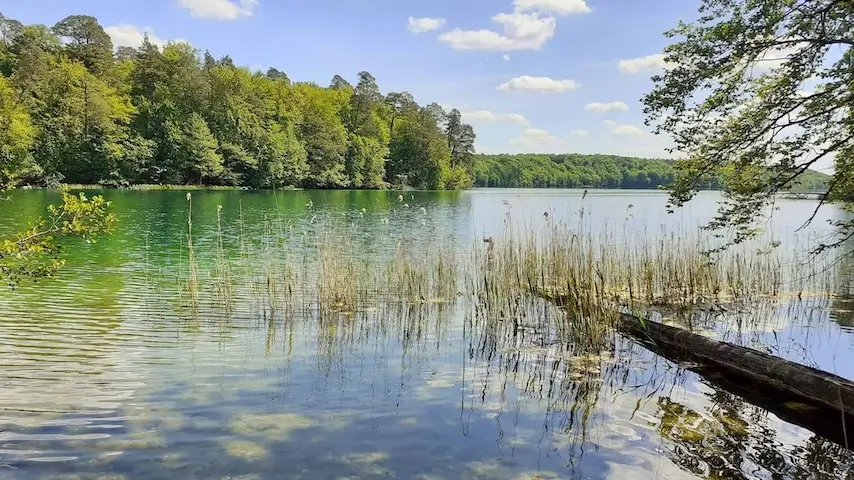
Stechlinsee, source: https://www.reise-liebe.com/
Liepnitzsee
This picturesque forest lake near Berlin is completely closed to combustion engines. Electric and paddle boats only.
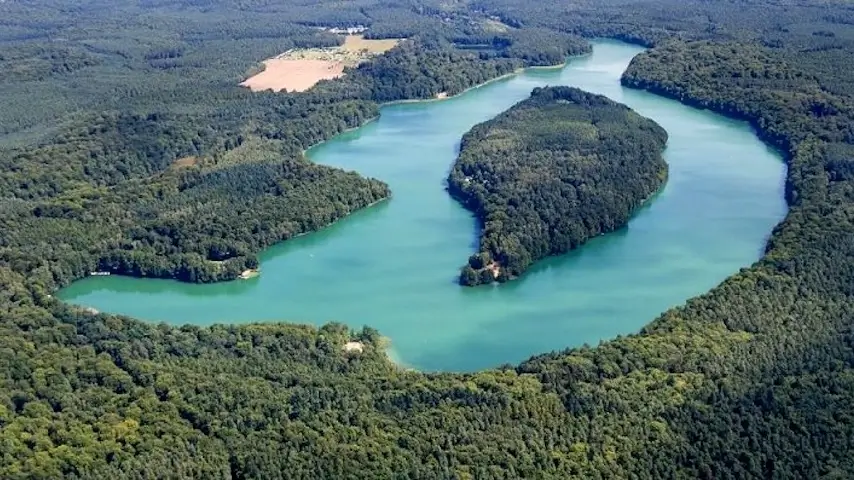
Liepnitzsee, source: https://www.wgsebald.de/
Lower Saxony (Niedersachsen)
Zwischenahner Meer
Located near Oldenburg, this large lake allows electric boats and sailing, keeping emissions low and water quality high.
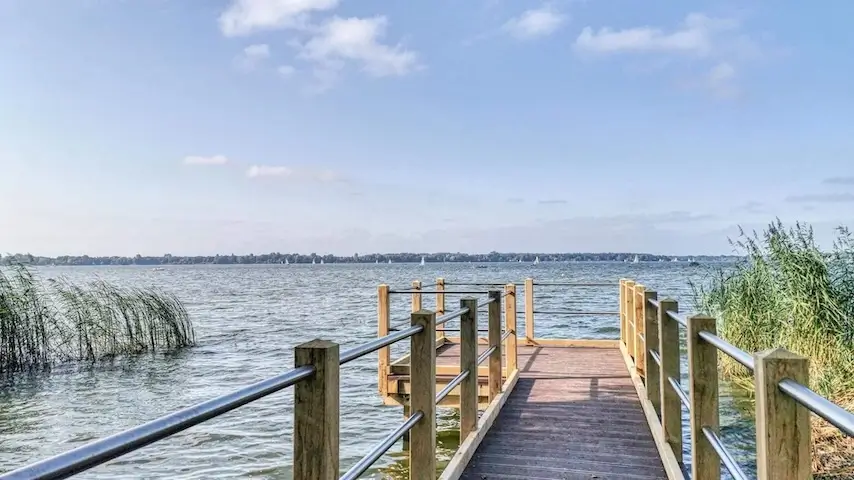
Zwischenahner Meer, source: https://www.bad-zwischenahn-touristik.de
Steinhuder Meer
Only electric boats up to 10 horsepower are allowed; combustion engines are prohibited to protect the environment.Sailing, rowing, and paddle boats are also permitted.

Steinhuder Meer, source: https://www.naturpark-steinhuder-meer.de/
Mecklenburg-Vorpommern
Müritz National Park Lakes (e.g., Feisnecksee, Woterfitzsee)
While the larger Müritz Lake allows limited regulated motorboat traffic, many smaller lakes in the national park are off-limits to combustion engines and open only to electric or paddle-powered boats.
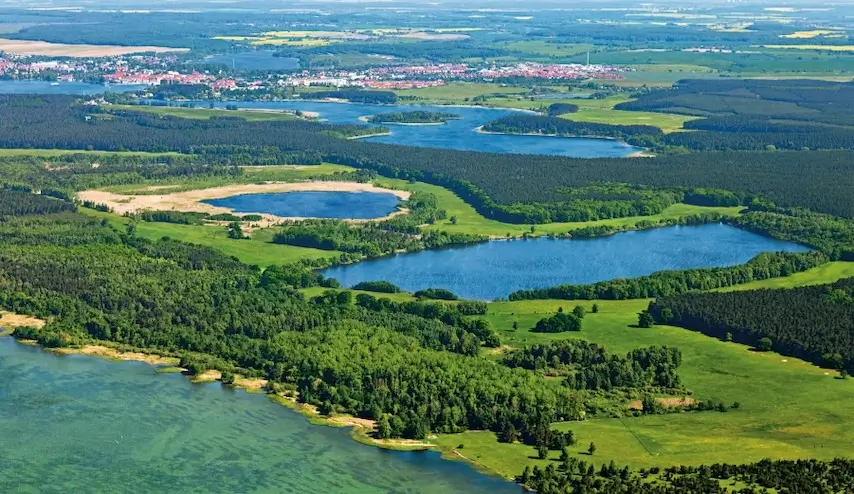
Müritz National Park Lakes, source: Tourismusverband Mecklenburg-Vorpommern
Tollensesee
This lake has restrictions in place for parts of the shoreline and protected zones where only electric or sailboats are allowed.
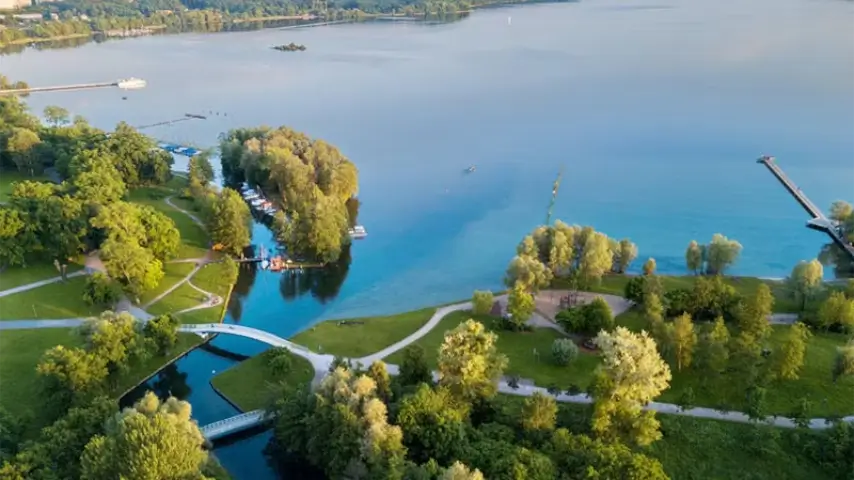
Tollensesee, source: https://www.amt.windmuehlenstadt-woldegk.de/
Hessen
Edersee
Electric boats are allowed and available for rent, while combustion engines are generally prohibited with few exceptions.Sailing, rowing, and pedal boats are welcome.
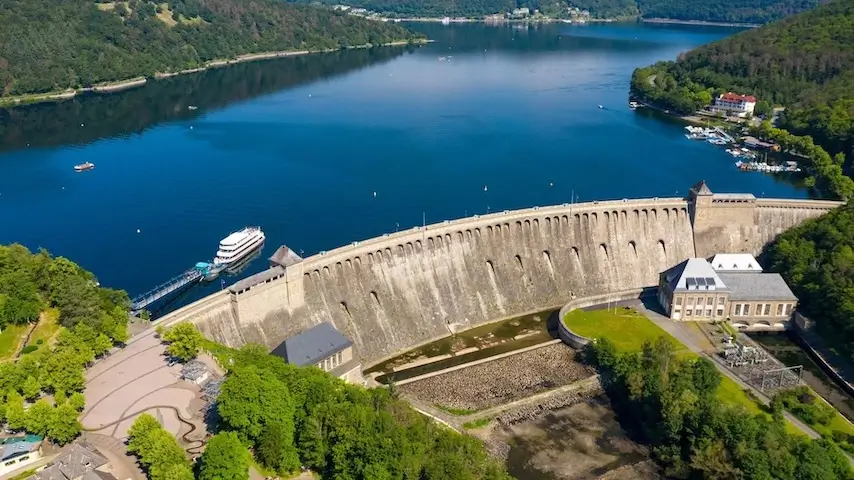
Edersee, source: https://www.edersee.com
Why These Rules Matter
The switch to electric boating isn’t just a trend — it’s a crucial step toward protecting water quality, reducing noise pollution, and ensuring wildlife habitats remain undisturbed. These regulations also help maintain a peaceful and enjoyable atmosphere for visitors.
Environmental Benefits of using only electric boats on the lakes:
- Zero emissions: No oil or fuel leaks
- Quiet navigation: No engine noise disturbing animals or people
- Cleaner air and water
- Less wave action, reducing shoreline erosion
Important Note
Regulations vary from lake to lake and can sometimes depend on zoning, conservation status, or seasonal changes. Always check local rules or rental services before bringing or hiring a boat.
Final Thoughts
Whether you're paddling across the glassy surface of Stechlinsee or cruising silently through the alpine waters of Königssee, these electric-boat-only lakes offer a refreshing reminder of what sustainable tourism can look like. Germany is leading the way in balancing nature and recreation — one quiet lake at a time.


